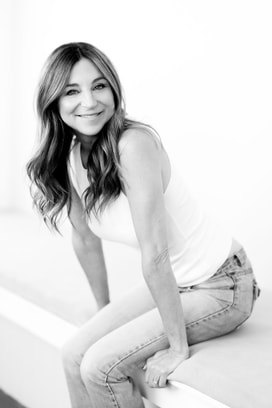- Home
- About
- Inkflower
-
Books & Writing
- Inkflower
- Arabella's Alphabet Adventure
- I am Change
- The Wrong Boy
- Alexander Altmann A10567
- The Tattooed Flower
- Playing for the Commandant
- Hanna Mendels Chans
- La Pianista di Auschwitz
- Der Klang Der Hoffnung
- De Gave Van Hanna Mendel
- Saving Midnight
- Was Dir Bleibt, Ist Dein Traum
- Il Bambino Di Auschwitz
- Smitten
- All You Need is Love
- Pianista De La Auschwitz
- Other Writing
- Author Talks
- Contact
- News

I wasn't always a writer. I used to be a lawyer. I spent my days in the city, rushing between courtrooms, drafting affidavits and briefing barristers. Then my father got sick and told me his holocaust story; a story he'd kept hidden so hate wouldn’t touch us.
That story changed everything. The telling of it was the beginning of our friendship. It was also the beginning of my writing career, because after I'd written about my father's tragic, brave life in The Tattooed Flower, I couldn't go back to being a lawyer. I couldn't do anything but write, so I quit my law job and started small, writing profiles and articles for the local papers and eventually features for magazines and newspapers. I went back to university to hone my craft and while I was there wrote two collection of stories, All You Need is Love, a portrait in words and pictures of fifteen diverse Australian women and their remarkable paths to motherhood. Twelve very different Australian couples featured in my next book, Smitten, an intimate exploration of enduring love. Much as I loved dipping into other people's stories, when I thought about what I'd like to write next, I found myself drawn back to Auschwitz and my father’s experience as a thirteen-year-old boy in the camps. I guess I wasn't ready to let him go. Writing The Wrong Boy, a Young Adult novel about a Jewish girl whose life is turned upside down when her family are sent to Auschwitz, allowed me to revisit my father’s story and pass on his warning never to forget. It was also the only way I knew to prevent something like the Holocaust from happening again – by trying to understand it, and the best way to do that was by giving my readers a character to care about. Not millions of Jews - just one - a girl their age with the same fears, insecurities and longings. It was a steep learning curve, moving from interviewing people to imagining them into existence, giving them a voice and a personality, having them laugh, cry, love, starve and sometimes die. But I was hooked. A chance meeting with an elderly Holocaust survivor who was put to work in Auschwitz's elite Horse Commando led to my next novel, Alexander Altmann A10567 about an emotionally withdrawn boy and a damaged horse who heal each other. That book was published in 2014, around the time 200 Nigerian schoolgirls were kidnapped by a terrorist organisation opposed to girls’ education. The kidnapping haunted me and I wondered what I could do, not just for the 200 frightened girls, but for the 200 million girls in developing countries who wake up each day and don’t go to school. As a writer, my best weapons are words so, after travelling to Uganda to speak with girls, I wrote a book. I am Change is their story of growing up poor in a place where girls are supposed to be invisible. Where a girl is not meant to be smarter than her brother or go to school, enjoy her body or decide who to marry. My hope, in writing the novel was to create a character who will inspire readers to be agents for change. Arabella’s Alphabet Adventure was my first picture book and so fun to write. I loved to hang out at my local library and read to my kids when they were small so it was the perfect setting for a story about an ABC book who travels the world as a stowaway in search of a better life, only to learn that she is perfect - and loved - just the way she is. My newest novel, Inkflower is the story of teenage girl who finds out her father has six months to live and a story he’s never told her about his time in Auschwitz. It’s based on my father’s experiences as a child survivor and the time we spent together after he was diagnosed with MND. I was in my thirties when my Dad became ill but Lisa, the main character is fifteen and doesn’t want to hear her father’s awful story, because she has secrets too. No one at school knows she is Jewish or that her dad is sick. Not even her boyfriend. But that’s all about to change. And so is she. |
Proudly powered by Weebly
